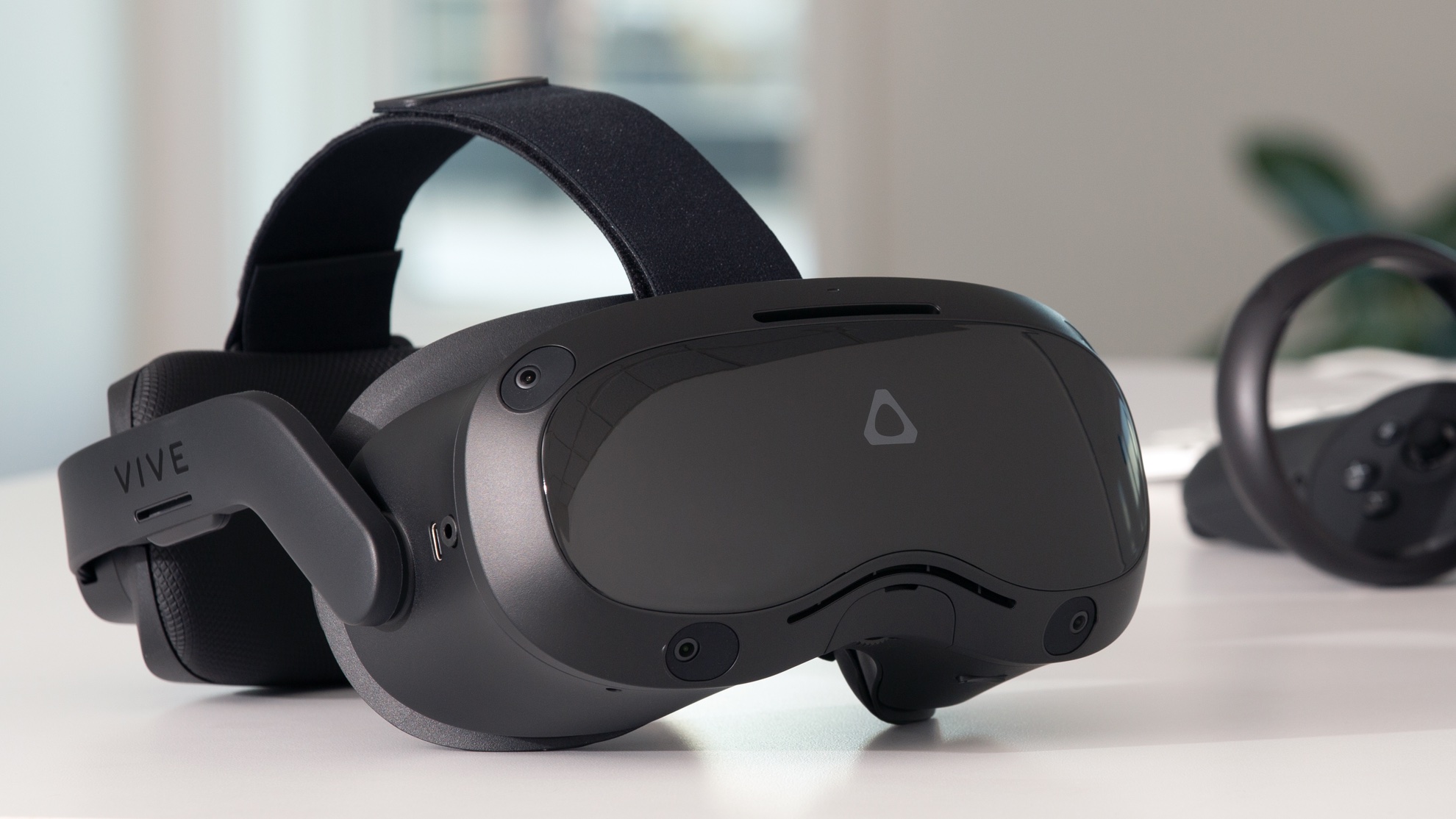HTC VIVE's 5G VR is really exciting. I hope Apple's AR/VR headset copies it
For once, I'm hoping that Apple will Think Similar when it comes to its AR/VR headset in 2022


Get all the latest news, reviews, deals and buying guides on gorgeous tech, home and active products from the T3 experts
You are now subscribed
Your newsletter sign-up was successful
One of the most interesting announcements at CES 2022 is HTC's new "portable, private 5G experience" for its VIVE Focus 3, a wireless all-in-one VR headset with 5G connectivity. As much as we love the HTC VIVE Pro 2, you can hardly take it out and about with you. But the VIVE Focus 3 is designed for you to do just that.
HTC is targeting the corporate world with the Vive Focus 3, but the "high-fidelity, low-latency wireless VR" it's designed to deliver is just as relevant to the rest of us too. And I can't help thinking that the way HTC is approaching this could be how Apple is thinking too. We know Apple's AR/VR headset is coming, probably this year, and we know it's designed to be mobile. So what HTC's doing here is very interesting indeed.
How to make a lightweight VR headset with heavyweight processing power
Instead of doing all the processing on the headset, HTC has developed another option. It uses HTC's private 5G and the Lumen fibre network in the US to offload the VR rendering from the headset to the cloud in much the same way the Cloud Gaming in the Xbox Series X works: the processing is handled by faraway servers and streamed to your device.
It's not the only way the HTC VIVE Focus 3 works – its Snapdragon XR2 platform is pretty powerful, and you can run VR apps locally – but it enables developers to think beyond the capabilities of the headset. And that's awfully exciting.
We don't know whether Apple's AR/VR headset will have 5G in the first generation, but mobile connectivity is clearly coming: according to analyst Ming-Chi Kuo, Apple's goal is for its AR/VR headset to replace the iPhone in 10 years, and AR's most exciting applications are in the outside world, not your front room. I think Apple may do what it did with the Apple Watch at first, with the iPhone 14 handling the processing and the headset just displaying the results. But in the long term the AR/VR headset needs to run free, and iCloud processing could help it do just that.
Get all the latest news, reviews, deals and buying guides on gorgeous tech, home and active products from the T3 experts
Writer, musician and broadcaster Carrie Marshall has been covering technology since 1998 and is particularly interested in how tech can help us live our best lives. Her CV is a who’s who of magazines, newspapers, websites and radio programmes ranging from T3, Techradar and MacFormat to the BBC, Sunday Post and People’s Friend. Carrie has written more than a dozen books, ghost-wrote two more and co-wrote seven more books and a Radio 2 documentary series; her memoir, Carrie Kills A Man, was shortlisted for the British Book Awards. When she’s not scribbling, Carrie is the singer in Glaswegian rock band Unquiet Mind (unquietmindmusic).
